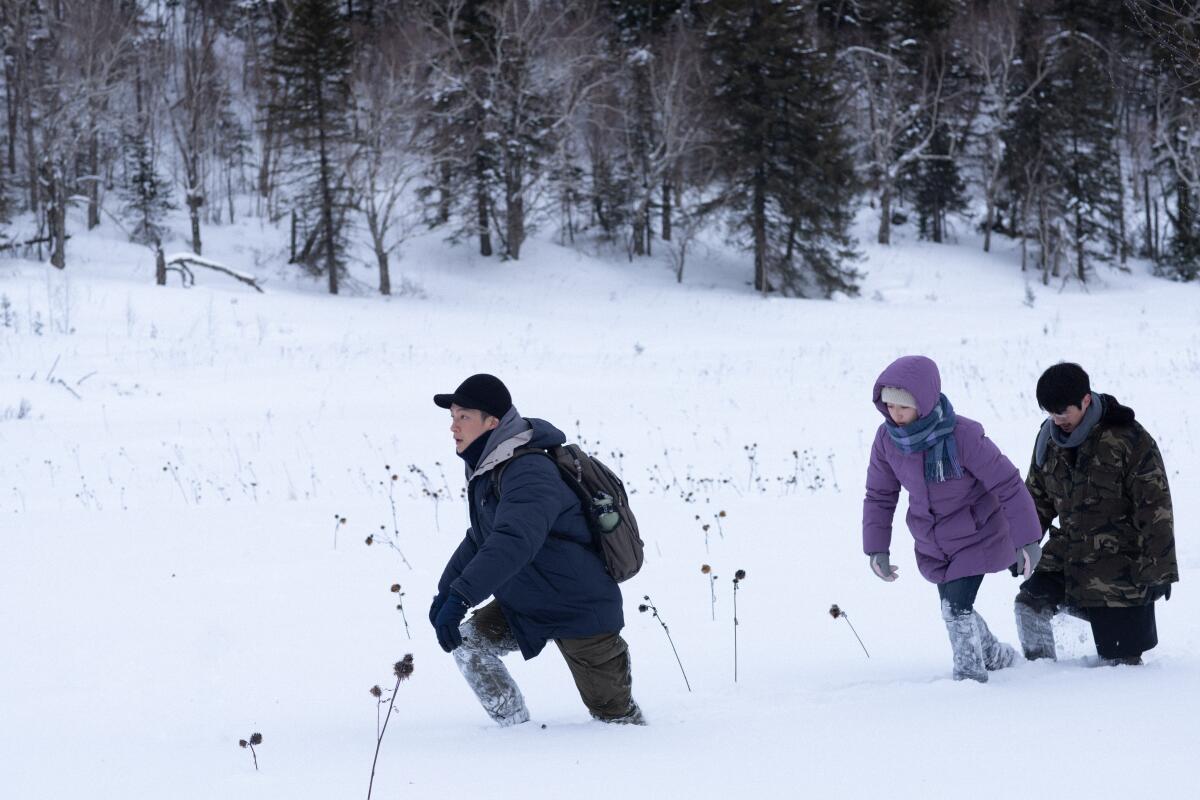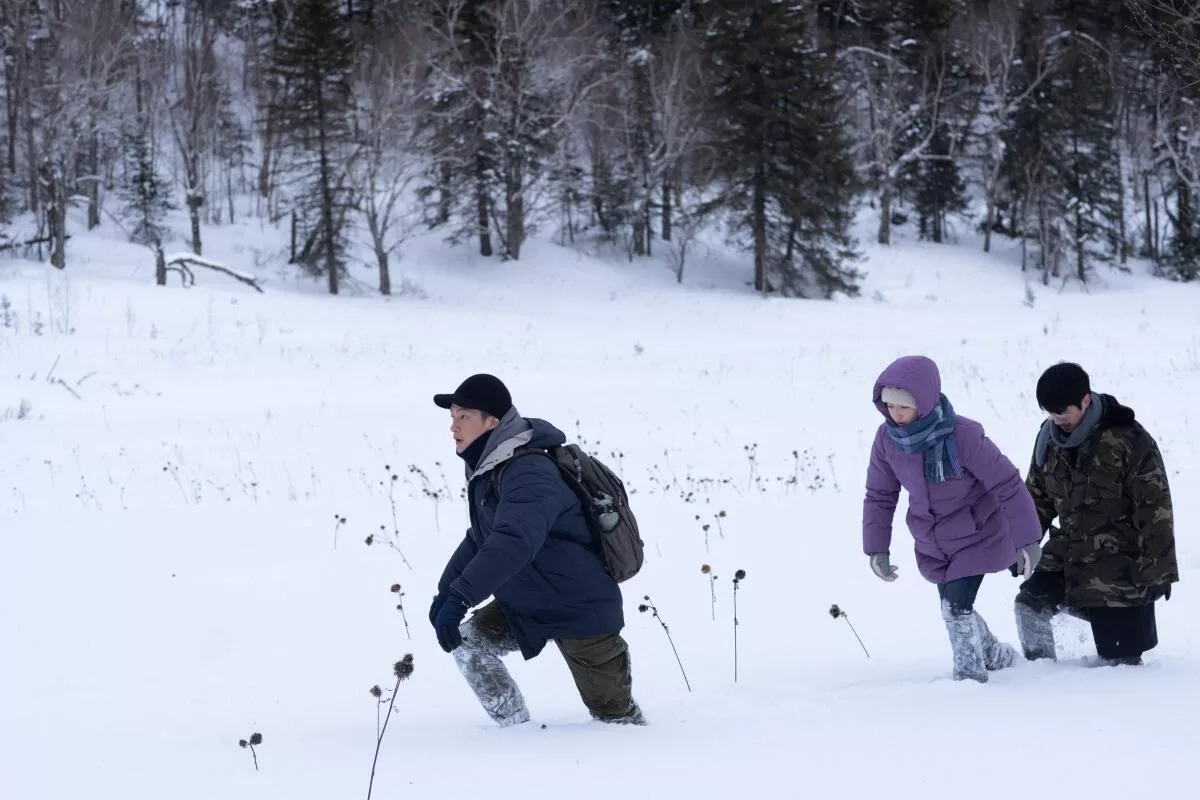From the delicate impermanence of snow to the appealing solidity of a frozen river, water becomes a well-mined metaphor in Chen’s modestly restive drama, which is set in a border region of China alongside North Korea that itself hews to no set identity. (And yes, as you might have speculated, boundaries are another active metaphor in the film.)
In the wintry foothills of Yanji, tour guide Nana (Zhou Dongyu) leads busloads of cheery Chinese travelers on day trips to the area’s traditional Korean villages, where costumed inhabitants perform ritualized dances. In between perky spiels and herding tourists, Nana has a brooding countenance: She likes her silent smoke breaks when she isn’t sardonically dismissing the cautious advances of kind, handsome pal Xiao (Qu Chuxiao), an employee at the restaurant where her groups eat lunch.
A brief glimpse of Nana’s performative charm and private hardness draws the attention of lonely Haofeng (Liu Haoran), a bank associate from Shanghai in town for a wedding, which may be an excuse for a more drastic decision. (He routinely ignores phone calls from a persistent mental-health counselor.) Seeing a chance to get out of his head, he joins Nana’s tour. Subsequently, she becomes intrigued by this sweatered, bespectacled figure lingering like a needy stray, and invites him to party with her and Xiao on their days off. Nana’s cramped, messy apartment becomes the place where everyone crashes, and two characters manage a nervy, fumbling hook-up.

(Strand Releasing)
This temporary “Jules and Jim”-style bond, which includes motorcycle excursions out of town, impromptu dares (cue the Godard reference), and plenty of clubbing, certainly looks invigorating in the way freshly minted abandon can be. And when you expect a frisson of jealousy to disrupt this unit — conditioned as we are by a lifetime of these tales — Chen avoids it, suggesting his characters are more interested in cohesion’s heady rush than collision’s emotional pitfalls.
And yet Chen, a Singaporean who’s made something of a theme out of unexpected connections between those outside their comfort zone (“Wet Season,” last year’s “Drift”), keeps his lost characters’ vulnerabilities as an undercurrent. Their stabs at freedom are invariably colored (beyond Yu Jing-pin’s nimble cinematography) by a gently swirling, intangible sadness, like a frost each of them can see but know will dissipate as long as they keep moving on to the next thing. Kin Leonn’s percolating score, reminiscent of the earliest days of ambient indie soundtracks, is similarly double-sided as an aural companion: swooning and melancholy in equal measure.
The payoff is a movie that, more than not, lyrically roams between states of being while skirting the need to explain itself. The experiment mostly works. You’d be surprised how nice it is to glean only a little bit about someone’s past — through an artful visual effect, or a couple of enigmatic sentences — without it feeling like something that we’ll need to see resolved for the sake of a tidy narrative.
It’s bracing to watch a movie whose very flow communicates how to experience it, which can also be said of Zhou’s captivating turn as a young woman committed to being elusive as a ward against what being still and reflective might bring up. Her co-stars do fine work too, but something about Zhou’s pulsating portrayal seems to get nearest to what Chen’s after in “The Breaking Ice” about a young generation’s anxieties, toggling between the exhilarating restlessness of running water and those times when one feels cold and hard.
‘The Breaking Ice’
Not rated
In Mandarin and Korean, with English subtitles
Running time: 1 hour, 37 minutes
Playing: Now at Laemmle Royal, West Los Angeles
